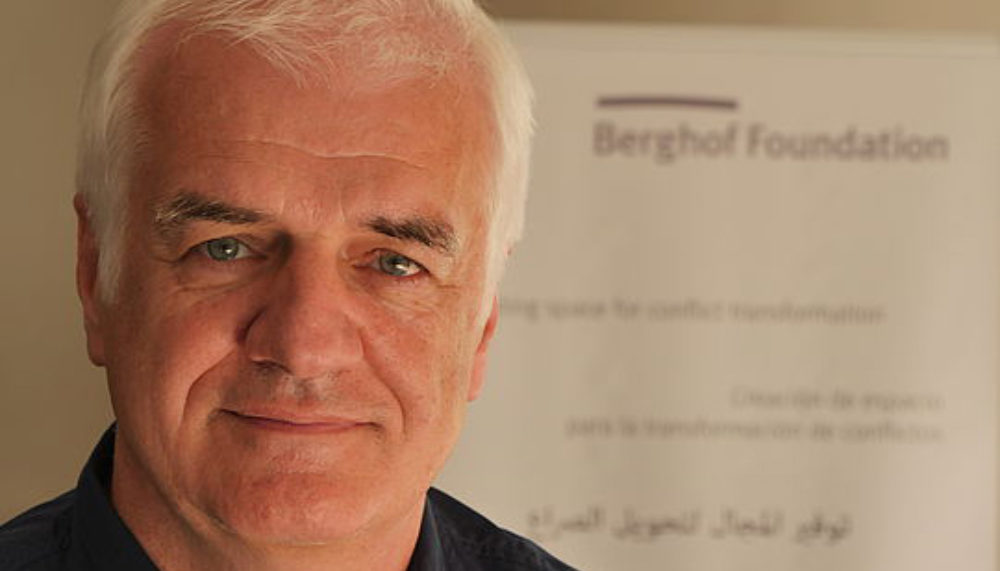BLOG POST | 7 Mar 2019
How to transform intractable conflicts?
A review of the Munich Security Conference 2019

In February, heads of government, ministers and security experts from all over the world gathered for the annual Munich Security Conference.
By Hans-Joachim Giessmann
In February, heads of government, ministers and security experts from all over the world gathered for the annual Munich Security Conference. Participants were asked who would “pick up the pieces” of an eroding international order “and put them back together”.
There were hardly any satisfactory answers. Above all, the appearance of US Vice President Mike Pence, whose speech many participants perceived as crass in tone, provided a disturbing retort to Angela Merkel's plea for the preservation of multilateral approaches. Concern about the prospects for global cooperation has definitely not diminished through the conference.
The disappointing outcome is not really a surprise. First, while there was a widespread lack of political will to work together in order to find a way out of this misery, there was no lack of blame, considered more or less justified depending on one's own point of view. The positions were known in advance but there was no a constructive search for compromises, which is a requirement for a common order.
Secondly, and I think this is even more important, the format of the Munich Security Conference – as important as exchange at the highest state level is for the clarification of common interests – seems to have run out of time for dealing with and resolving most of today's violent conflicts. Relevant actors, whose participation in finding solutions is indispensable, were not invited or heard. However, governments and politicians alone cannot overcome conflicts that are essentially multidimensional, intractable, complex and asymmetric.
Unless the dissatisfaction that triggers violence is addressed as a follow-up to the agreement, the peace deal becomes a fallacy.
In these protracted conflicts, governments, the political opposition and social actors are both, drivers and affected parties. They call into question the regulatory capacity of existing organisations and regimes and are expressions of conflicting political, economic and social interests. Their course is often neither linear nor synchronous – some are even systemic. The term "human security", which the UN Development Programme (UNDP) coined already 25 years ago, best expresses the change in the nature of security.
As in previous years, however, the Munich Security Conference followed the traditional concept of government-organised international security. From peace and conflict research, however, we know that agreements to end armed conflicts, no matter how detailed, are usually short-lived unless they subsequently lead to a change in the behavioural patterns and mutual relationships of the former conflict parties. Unless the dissatisfaction that triggers violence is addressed as a follow-up to the agreement, the peace deal becomes a fallacy. Yet, changes in behaviour and attitudes cannot be imposed. Agreements that one side perceives as humiliation gnaw away at the minds of those affected and, at worst, shape revenge narratives for years to come, even among descendants.
The recognition of one's own limits to action is painful for leaders, but inevitable. Systemic and asymmetric conflicts can only be resolved through cooperation and compromise. This does not mean blurring the boundaries between legitimacy and illegitimacy, between law and injustice. The universal norms of international law and human rights, as the name implies, are universally binding, whether exercised in the name of a state or a group. Sanctions may therefore be necessary and indispensable, and related legal issues to strengthen a kind of global governance must be resolved.
However, it is not just about law and order. There are a number of examples of how even hostilities that are considered irreconcilable can be resolved sustainably by changing the way we deal with one another. Examples are Franco-German relations, the ending of apartheid in South Africa, and the cooperation of the former parties to the conflict in Northern Ireland in the aftermath of the Good Friday Agreement. Yet innovative approaches have a hard time asserting themselves in an era of seemingly power-obsessed geopolitics. If former parties to a violent conflict learn about how to deal with divergent interests in a nonviolent manner – using inclusive approaches such as public-private partnerships in development policy or engaging civil society organisations in multi-level negotiations and mediation processes – it can help to transform protracted conflicts into constructive collaboration. This is what the Berghof Foundation is trying to support.
Media contact
You can reach the press team at:
+49 (0) 177 7052758
email hidden; JavaScript is required


